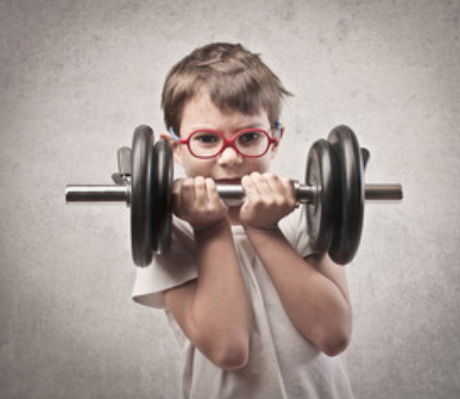|
If they take a single week off of training, they lose strength. In fact, in several studies, young fit people who had only two weeks of downtime lost so much strength that it was “equivalent to aging by 40 or 50 years”: https://www.google.com/…/muscle-strength-fades-after-just-…/
We all have this totally unfounded belief that children and young adults can blithely be super fit. But they respond to the training effect all the same, and they respond to the lack of training effect even more dramatically. That is, when you take away the strength stimulus, capability is subtracted from a youth far more rapidly than in an adult. American childhood obesity is on the rise. Kids are not naturally lean, fit, or healthy. They do have the advantage of having accumulated LESS absolute damage (ie - total aging), although they might’ve had even more relative damage (ie - accelerated aging). Ask primary school coaches who work with kids who take the offseason off versus kids who continue training and practicing in the offseason. Night and day. There are two youth athletes I saw worsen dramatically by simply reducing their training. No injuries. No sickness. One kid had attained a ridiculous level of effortless 100 strict clean push-ups, only to lose his motivation at the ripe old age of 13 or 14. Prior to hitting the brakes, he showed incredible promise (as in potentially THE best athlete in a few different sports). I met with him a year or so later to find he couldn’t rattle off a clean 15 reps without floundering and bellyaching. He’d peaked before puberty. Another promising athlete could perform a gorgeous 100lb deadlift at even younger than the prior example. Likewise, he lost the fire and took only a 4 month hiatus from training. He wasn’t inactive during this period. He played sports, played a lot, grew another 10lbs heavier and became a lot more coordinated. Returning to the gym, we found he couldn’t begin to break the warmup weight (55lbs) from the ground. He was as confused as I. I knew that kids lost strength like adults by adapting to lack of stimulus; but even I, with 15 years of professional experience, was a little dumbfounded. He’d lost half of his pulling strength on arguably the most critical structural lift which informs all other athletic movements, from running, to jumping, to throwing, to kicking, to swinging, and so forth. Though improvements may be more rapid in young people, maintenance is harder, and degeneration is more rapid. This flies in the face of most common beliefs, I realize. But it’s a studied phenomenon. And I’ve seen firsthand the reality. The takeaway is simple: you will adapt to lack of strength stimulus by becoming lacking in strength; and it hasn’t anything AT ALL to do with “getting older”. Youths lose strength faster. So you can stop with the old wives tales. It is a very straight forward equation of input to outcome. Remove the input, and there is zero surprise in loss of outcome. The surprise, if any, is that young people degenerate in fitness more rapidly than adults.
0 Comments
Your comment will be posted after it is approved.
Leave a Reply. |
Elev8 Wellness
|
LIVE. AWESOME.We offer the highest quality in personal fitness, nutrition, and mindset coaching, helping you achieve your fitness, health, wellness and performance goals no matter the obstacle. With virtual online training and private, in-studio training we make it easier to reach your wellness goals safely.
No more can't. No more not good enough. If you compete in a sport, let your mind no longer hold you back from being the greatest. If you don't, let your mind no longer hold you back from being the best version of you that you can be. Sign-up for a Tour Covid Screen Waiver Elev8 Waiver Become an Elev8 Instructor Space Rental |
6244 lyndale ave. s., minneapolis, mn 55423
|
© 2021 Elev8 Wellness LLC. All Rights Reserved. site map | contribute | SITE BY Sproute Creative


 RSS Feed
RSS Feed
